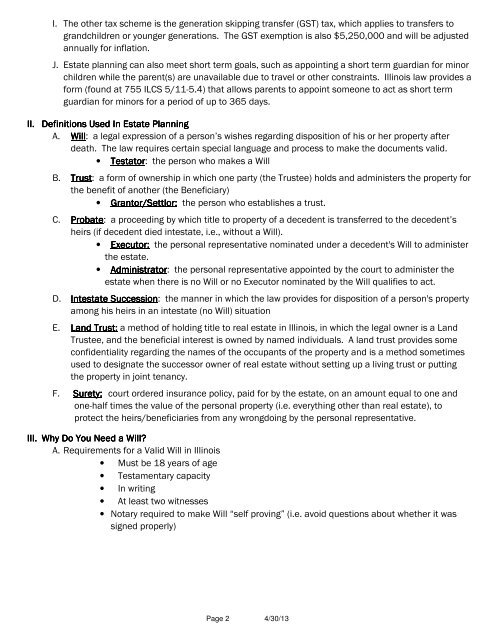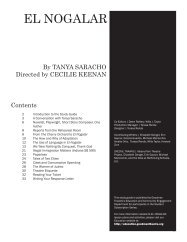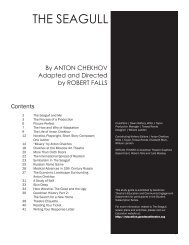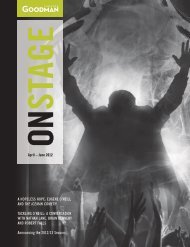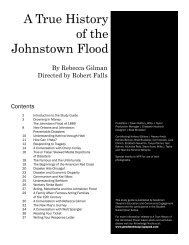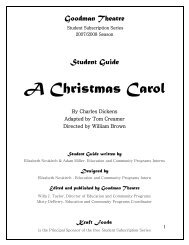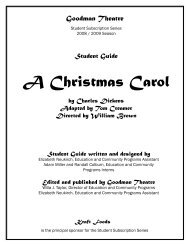Estate Planning Seminar Materials - Goodman Theatre
Estate Planning Seminar Materials - Goodman Theatre
Estate Planning Seminar Materials - Goodman Theatre
Create successful ePaper yourself
Turn your PDF publications into a flip-book with our unique Google optimized e-Paper software.
I. The other tax scheme is the generation skipping transfer (GST) tax, which applies to transfers to<br />
grandchildren or younger generations. The GST exemption is also $5,250,000 and will be adjusted<br />
annually for inflation.<br />
J. <strong>Estate</strong> planning can also meet short term goals, such as appointing a short term guardian for minor<br />
children while the parent(s) are unavailable due to travel or other constraints. Illinois law provides a<br />
form (found at 755 ILCS 5/11-5.4) that allows parents to appoint someone to act as short term<br />
guardian for minors for a period of up to 365 days.<br />
II. Definitions Used In <strong>Estate</strong> <strong>Planning</strong><br />
A. Will: a legal expression of a person’s wishes regarding disposition of his or her property after<br />
death. The law requires certain special language and process to make the documents valid.<br />
• Testator: the person who makes a Will<br />
B. Trust: a form of ownership in which one party (the Trustee) holds and administers the property for<br />
the benefit of another (the Beneficiary)<br />
• Grantor/Settlor: the person who establishes a trust.<br />
C. Probate: a proceeding by which title to property of a decedent is transferred to the decedent’s<br />
heirs (if decedent died intestate, i.e., without a Will).<br />
• Executor: the personal representative nominated under a decedent's Will to administer<br />
the estate.<br />
• Administrator: the personal representative appointed by the court to administer the<br />
estate when there is no Will or no Executor nominated by the Will qualifies to act.<br />
D. Intestate Succession: the manner in which the law provides for disposition of a person's property<br />
among his heirs in an intestate (no Will) situation<br />
E. Land Trust: a method of holding title to real estate in Illinois, in which the legal owner is a Land<br />
Trustee, and the beneficial interest is owned by named individuals. A land trust provides some<br />
confidentiality regarding the names of the occupants of the property and is a method sometimes<br />
used to designate the successor owner of real estate without setting up a living trust or putting<br />
the property in joint tenancy.<br />
F. Surety: court ordered insurance policy, paid for by the estate, on an amount equal to one and<br />
one-half times the value of the personal property (i.e. everything other than real estate), to<br />
protect the heirs/beneficiaries from any wrongdoing by the personal representative.<br />
III. Why Do You Need a Will?<br />
A. Requirements for a Valid Will in Illinois<br />
• Must be 18 years of age<br />
• Testamentary capacity<br />
• In writing<br />
• At least two witnesses<br />
• Notary required to make Will “self proving” (i.e. avoid questions about whether it was<br />
signed properly)<br />
Page 2 4/30/13


